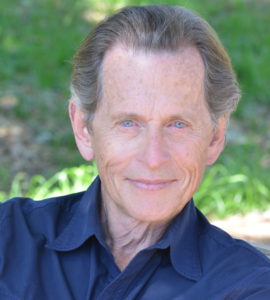
 Jim Selman
Jim Selman
| Photo Credit: Tony Perzel
I am a guy in my 70’s in the process of creating the rest of my life. I am very committed to not getting sucked into the historical/cultural conversation of what it means to grow older and what is and isn’t possible as we age. I want the rest of my life to be more interesting, more challenging and more fulfilling than anytime in my past—and my past has been terrific.
I have had a pretty good run so far—a great family, three wonderful children, a solid spiritual and philosophical foundation based in service and love, great friends, good health (even though I exceeded my share of most vices), and a bias toward new ideas and living life to the fullest.
From a career point-of-view, I have spoken to hundreds of groups and associations on the topics of empowerment, transformation, organizational change and coaching during the past 30 years. I’ve worked with lots of the big companies in several countries to transform parts of their organizations through culture change, building new competencies for leadership, and mobilizing large numbers of people in the context of new businesses processes and relationships.
I was instrumental in building new theory and practical techniques in the field of management (including the concepts of “organizational transformation”, “coaching”, “the Merlin method for designing the future”, “breakthroughs” and “breakdowns”) and in introducing new approaches to producing broad “paradigm shifts”. As co-founder and CEO of Transformational Technologies, a network of over 70 management consulting firms, I have influenced the development of more than 2,000 U.S., European and Latin American companies. Many of the firms originally affiliated with Transformational Technologies have grown to be among the leading change management companies in the United States.
I have had the privilege to work in education and research with some of the leading thinkers and practitioners in the fields of transformation and management, including Fernando Flores, Warren Bennis, Peter Senge, Richard Pascal, Werner Erhard and Ken Blanchard among others. My publications include:
• “Leadership and Innovation”, Innovation Journal (2002)
• “Coaching: Buzzword or Breakthrough”, Government of Canada (2002)
• “Ethics and Values in Coaching”, Government of Canada (2001)
• “Organizational Transformation: Innovations in Theory and Practice”, CSC Index (1999)
• “Commitment and Change”, ICP Argentina (1998 )
• “Dialogue on Commitment”, Journal of Management Inquiry (1995)
• “Managers Anonymous”, New Management Magazine (1992)
• “Coaching and the Art of Management”, Organizational Dynamics (1989)
• “Contextual Management”, Industry Week (1983)
I have been a member of the California Commission on Aging and the Federal Commission on Drug Abuse and a former director of the Breakthrough Foundation. I was a founder of Growing Older (a non-profit for seniors’ education) am a Founding Member of the Legacy XXI Institute.
My current passion is to transform the culture of aging from one of decline and loss to one of possibility and power. I am creating a website for this purpose at www.thepossibilityplace.com …watch for announcements of our launch soon.
I have no agenda for this blog other than hopefully to stimulate as much conversation and action as possible around the subject and issues of growing older and the possibilities we can create. My motto is “let’s clean up the mess before we die”.
Want to reach me? Email me.

why are all the pictures of people at the top of your home page men? I’ve just unsubscribed as a result.
Greetings Jan,
We have a series of 10 different banners that go across the top of the pages and two of those banners have only men on them. We agree with you, that’s not acceptable, so we have removed those two banners from the site.
Thank you for telling us why you were leaving, feedback is the only way we can improve what we do!
Thomas Murphree
My favorite sentence on your “About Us” page is this:
I have no agenda for this blog other than hopefully to stimulate as much conversation and action as possible around the subject and issues of growing older and the possibilities we can create.
So many seniors seem to have given-up on ever achieving any more than they already have. As a consequence it seems that they die before they need to. Perhaps that is often a consequence of having no dreams or goals.